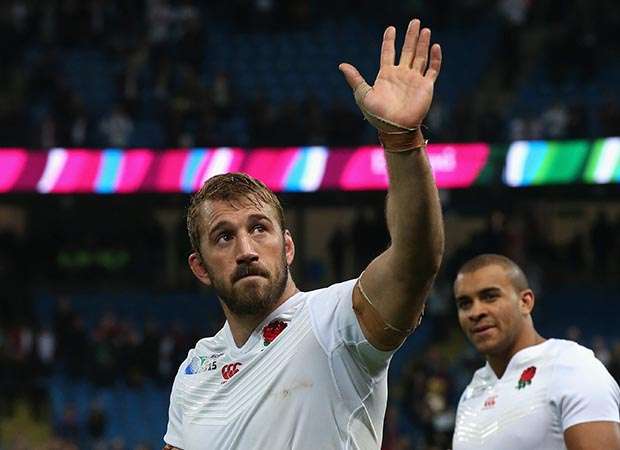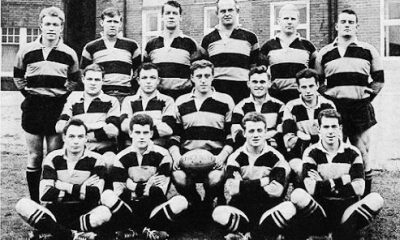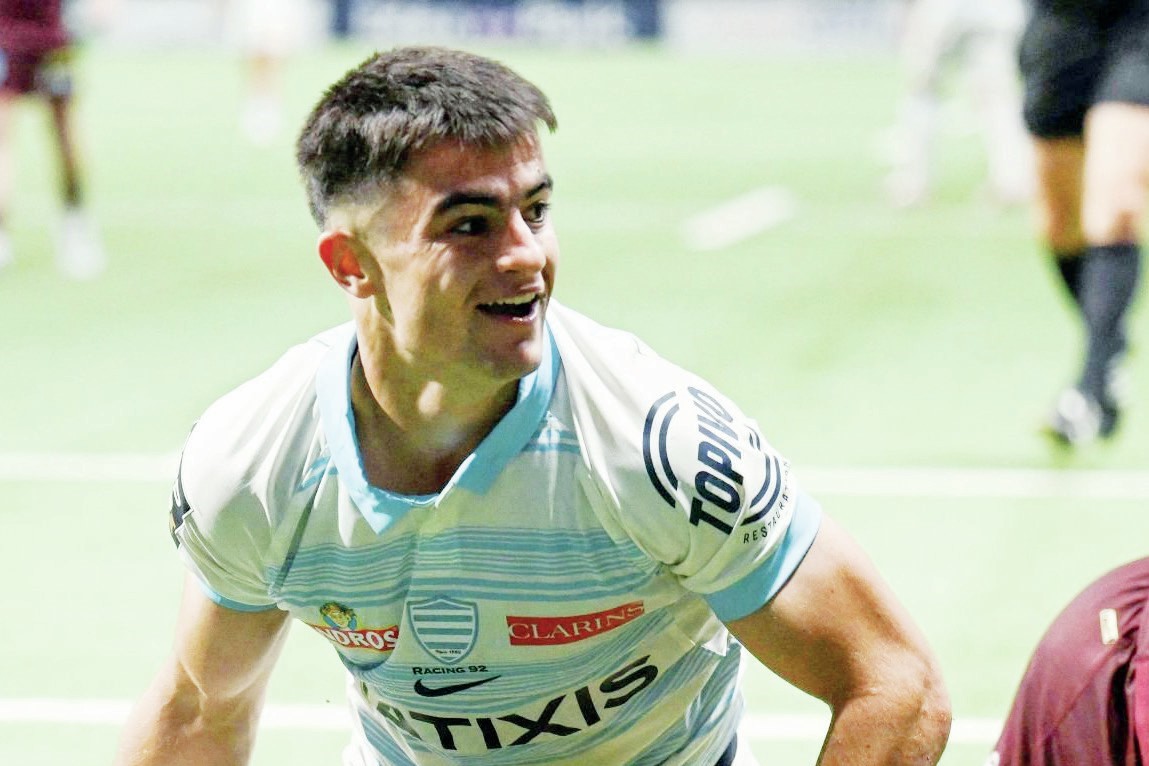
 Boris Johnson is addressing the great and the good on the occasion of the World Cup draw at the Tate Modern on the first Monday in December 2012.
Boris Johnson is addressing the great and the good on the occasion of the World Cup draw at the Tate Modern on the first Monday in December 2012.
“Rugby comes home to London,” he says in a tub-thumping tone perfect for the pazazz of the occasion. “Four point two billion people – so it says on my brief. Four point two billion people will watch the greatest tournament of the oval ball held anywhere. Bring it on.”
At that point, a man of real vision would have hinted at a sobering caveat, that while the game was indeed coming home to its birthplace, the England team would do well to avoid eviction from its palatial premises at Twickenham long before the final.
Even had such a negative scenario crossed the mind of those present, nobody was going to rock the boat by predicting that England would miss the one for the quarter-finals. Johnson had played his part in the draw for Pool A, one which would prove too much for the hosts despite home advantage.
The Mayor of London had pulled Wales out of the hat reserved for the third-band of seeds which meant plonking them alongside Australia from the first and England from the second. It was, according to head coach Stuart Lancaster at the time, ‘unbelievably exciting’.
Australia were third in the rankings, England fifth and Wales, as a result of a last-minute home defeat by the Wallabies 48 hours earlier, down to ninth. Four months later, England were up to fourth and Wales to fifth.
Oh, the folly of making the draw almost three years before the event. Had they shown a modicum of patience in waiting until the end of the 2013 Six Nations, England and Wales would have been swimming in separate pools.
That, at the very least, would have spared the game’s governing body, World Rugby, the embarrassment of watching the hosts stage the best tournament of the lot without their national team.
Their loss will not affect attendances of matches sold out months ago but it will cost ITV as host broadcasters untold millions in commercial revenue. It is impossible to quantify the turn-off by the casual sports fans and the consequent loss of potential converts from the football heartlands of Merseyside, Manchester, the Midlands and the North-east.
Lancaster, his coaches and the players are responsible for that. World Rugby will say it was nothing to do with them but it is not difficult to present a case accusing them of unwittingly aiding and abetting England’s demise with their impatience to make the draw at least 12 months ahead of its time.
In defence of World Rugby, the problem may have more to do with their rankings than the timing of the draw. The positions within the top ten change like a kaleidoscope on an almost weekly basis.
Wales, for example, shot up to No. 2 after their win over England. That made them, however briefly, the second best team in the world which, in turn, made a mockery of the fact that at the time, they had beaten the Big Three once in 23 attempts over the last seven years.
Australia, England and Wales were lumped together in the Pool from Hell because of their rankings in December 2012 – third, fifth and ninth respectively. Why, the argument goes, didn’t World Rugby delay the draw until after the 2013 Six Nations?
Had they done so and the same three numbers been drawn from the top three bands, the result would have been Australia (third), Wales (fifth) and Ireland (ninth).
Had the balls been shaken later still, in September 2013 after the annual Rugby Championship, it would have been England (third), France (fifth) and Scotland (ninth).
The earlier the organisers make the draw, the more likely they are to fall foul of their own ranking system. Wales are not the only country to have gone from ninth to second since Boris and co. pulled the balls out of the bag. Ireland made the same climb in an even faster time.
The three top bandings now are very different to those in December 2012.
Band 1:
Then: New Zealand, South Africa, Australia, France.
Now: New Zealand, Australia, Wales, South Africa.
Band 2:
Then: England, Ireland, Samoa, Argentina.
Now: Ireland, France, Argentina, England.
Band 3:
Then: Wales, Italy, Tonga, Scotland.
Now: Scotland, Fiji, Japan, Tonga.
At the Tate Modern nearly three years ago, England were all the rage. Hadn’t they just routed the All Blacks 38-21 at Twickenham? In acclaiming a ‘great, great victory’, Sir Clive Woodward said then: “The top four sides will not want to be playing England.”
Wales and Australia found the experience surprisingly enjoyable. Each in their different way proved that three weeks can be a very long time at the top end of the game, never mind three years.


Latest News
Super Rugby Americas: Round Ten Review

British and Irish Lions
British and Irish Lions: Biggest winners and losers from Andy Farrell’s selection























You must be logged in to post a comment Login